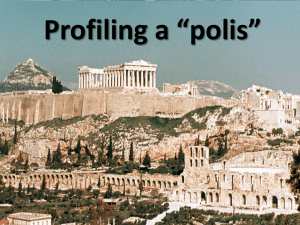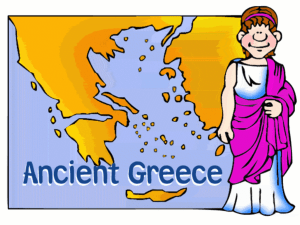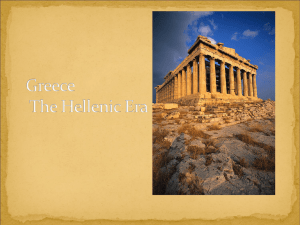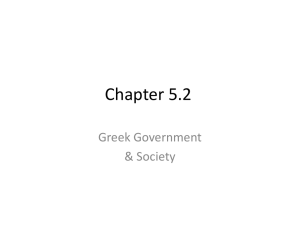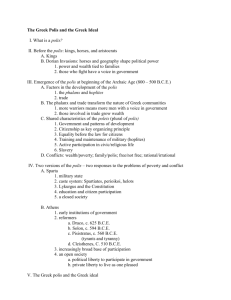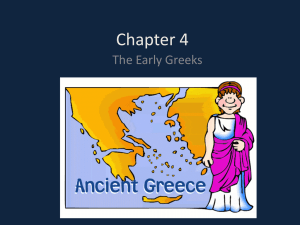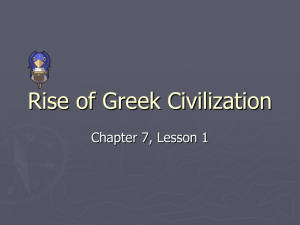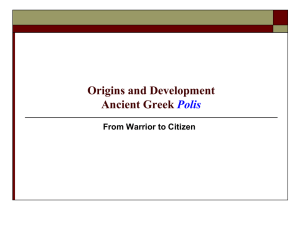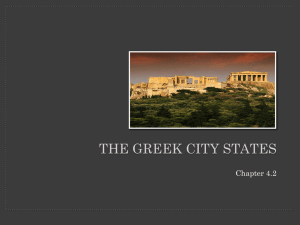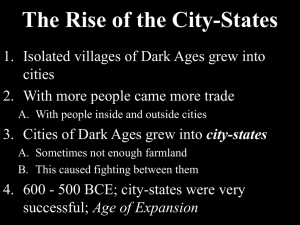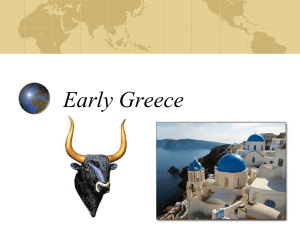Greece*s Early Civilizations
advertisement
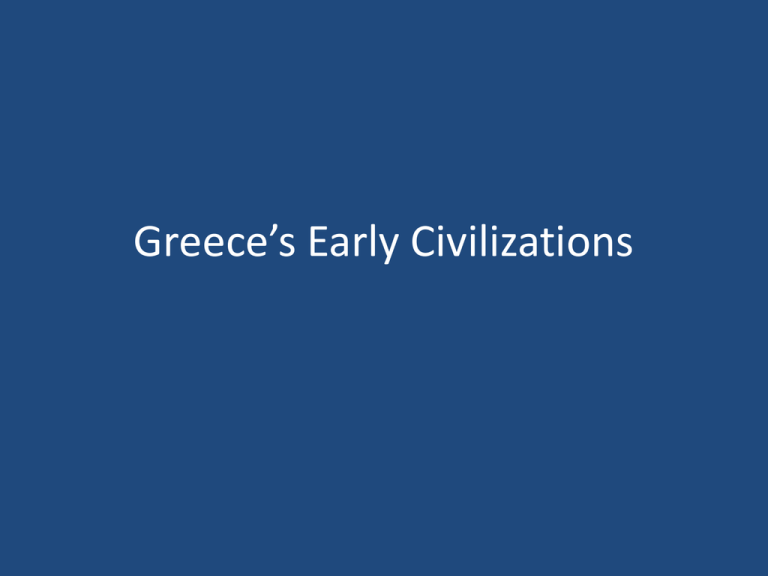
Greece’s Early Civilizations Minoan Civilization • Minoans civilization was the first to develop in the Aegean Sea region – they were not Greeks – lasted from c. 2500 BCE – c. 1450 BCE – trade was an important economic activity – civilization collapsed c. 1450 BCE • Theories: earthquakes caused tsunamis; Mycenaean's from the Greek mainland invaded Crete Mycenaeans • c. 2000 BCE – left Asia moved to Greece and set up several kingdoms • Mycenaean Kingdom: palace for king on a hill surrounded by thick stone walls; palaces were centers of government • c. 1450 BCE the Mycenaeans conquered the Minoans and controlled the area – expanded their military strength; successful during the Trojan War Dark Age • Mycenaean civilization declined over time – kingdoms fought one another – earthquakes destroyed palace fortresses – c. 1100 BCE the Mycenaean civilization had crumbled • Greek-speaking people known as the Dorians invaded the Greek mainland from the north and took control of the region – thousands fled the mainland and ended up on the Aegean islands and western Anatolia Hellenes • By 750 BCE many descendants of those who ran away returned bringing new ideas, crafts, and skills • Farmers grew more than they needed; surplus food was traded; a need for writing developed • Greek alphabet had 24 letters; record keeping became easier; people wrote down stories Colonies and Trade • By 700 BCE farmers couldn’t produce enough food for the growing population • To solve this problem, communities began to send people outside the region to establish colonies • Greek culture spread into new areas • Greeks began to make coins, affecting trade – trade expanded because merchants traded money for goods rather than barter Greek City-State • Mountains and seas separated Greek communities from each other • Communities became fiercely independent • Across Greece, nobles ruled numerous citystates • Like Mesopotamia, the Greek city-state was made up of a town and the surrounding area • Each city-state or polis was like an independent country Polis • Polis was the basic political unit of Greek civilization – at the center was a fort built on a hilltop – the hilltop was called an acropolis – outside the acropolis was an open area called an agora – the agora was a marketplace where people could: • gather and debate issues; choose officials; pass laws and carry out business • neighborhoods surrounded the agora; beyond the city were villages and farmland (all a part of the polis Greek Citizenship • We owe many of our ideas about citizenship to the ancient Greeks • Greek citizens were members of a political community with rights and responsibilities • Male citizens had: – the right to vote, hold public office, own property, and defend themselves in court • Male citizens had the responsibility to: – serve in government and fight for their polis as citizen soldiers Greek Citizenship cont. • In most Greek city-states only free, landowning men born in the polis could be citizens • They believed the responsibility to run the city-state was theirs because the polis was made up of their property • Women and children might qualify for citizenship, but they had none of the rights Citizen Soldiers • Wars were fought by wealthy nobles riding horses and driving chariots • Additionally, citizens called hoplites made up the city-state armies – hoplites fought on foot • The success of the hoplites came from their pride in fighting as brave warriors • Polis gave Greek citizens a sense of belonging • Strong loyalty to their own city-state divided the Greeks – they were not unified as a whole country • This lack of unity weakened Greece, making it easier to conquer
